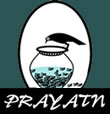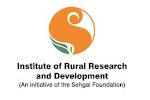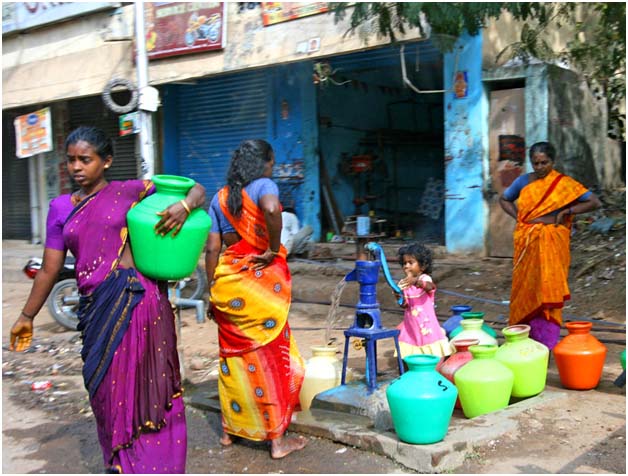Governance
PRAYATN invites applications for Expert – Livelihood Development, Rajasthan, Uttar Pradesh - Apply by February 15, 2012
Posted on 15 Feb, 2012 08:44 AMContent courtesy: DevNetJobsIndia

PRAYATN, founded in 1992 and spread around the States of Rajasthan, Uttar Pradesh, Madhya Pradesh and Orissa, believes that individual and voluntary participation affects social change. We create projects and programmes that make it possible for young development professionals to contribute their time, energy and skills in order to facilitate community initiatives aimed at creating opportunities for self-reliance, access to justice and equitable social order. Pratatn’s thrust is women and children, and their basic human and developmental rights. The organization therefore is multi-disciplinary, having expertise on community development, social action, networking, research-action, documentation and policy analysis. Pratatn provides a conducive environment for professional growth and opportunities for its team. It expects from candidates excellent inter-personal skills, articulation, innovativeness, and commitment to the cause and to the organization’s vision. It also encourages women candidates to apply for the positions.
IRRD invites applications for Doctoral and Post-Doctoral Fellowships, Gurgaon - Apply by February 15, 2012
Posted on 15 Feb, 2012 08:27 AMContent courtesy: DevNetJobsIndia

The Institute of Rural Research and Development (IRRAD) is an initiative of S M Sehgal Foundation, a leading nonprofit organization working towards furthering rural development in India. It envisions rural people across India motivated and empowered to make their lives more secure and prosperous. IRRAD designs, tests and replicates scalable community-based models for rural development in the areas of water management, agriculture, sanitation, governance and education. It also builds capacities of communities and community-based institutions to enable them to undertake their own development.
Stress of urban pollution on largest natural wetland ecosystem in East Kolkata - Causes, consequences and improvement
Posted on 14 Feb, 2012 10:23 AMThe impact of sewage pollution on these fish ponds and on the ecosystem is evaluated. Similarly, remedial measures to maintain water quality and to improve resource recovery efficiency are suggested.
Marine fisheries in India - Issues, opportunities and transition for sustainable development - A World Bank working paper
Posted on 14 Feb, 2012 10:03 AMThis working paper by the World Bank presents the findings of a study that was conducted as a collaborative initiative by the World Bank and the Department of Animal Husbandry, Dairyin
Living rivers, dying rivers: Rivers in the Western Ghats
Posted on 10 Feb, 2012 04:12 PMRiver stories from Maharashtra: Many morals to learn
Parineeta Dandekar’s presentation began with an account of some statistics related to Maharashtra, the third largest state in India. Regarding the state of water resources in Maharashtra, she noted that of the five river basin systems, 55 percent of the dependable yield is available in the four river basins (Krishna, Godavari, Tapi and Narmada) east of the Western Ghats. These four river basins comprise 92 percent of the cultivable land and more than 60 percent of the population in rural areas. 45 percent of the state's water resources are from west flowing rivers which are mainly monsoon specific rivers emanating from the Western Ghats and draining into the Arabian Sea.
With 1821 large dams and more in the offing, Maharashtra has the maximum dams in the country (35.7%). However, the proportion of gross irrigated area vis a vis the gross cropped area at 17.8 percent is much lower than the national average of 44.6 percent. The contradictions from the state, which is home to the highest number of dams, were discussed. In nearly 70 percent of the state’s villages (around 27,600 villages), water is either not available within 500 metres distance, or within 15 metres below ground level or when available is not potable (World Bank, Promoting Agricultural Growth in Maharashtra, Volume 1, 2003).
Dandekar discussed the World Bank funded Maharashtra Water Sector Improvement Project (MWSIP) initiated in 2005 whose main components were establishment, operationalisation and capacity building of Maharashtra Water Resources Regulatory Authority (MWRRA); establishment of river basin agencies in Maharashtra; and restructuring and capacity building of the Water Resources Department. The MWRRA Act (2005) has been amended, taking out the clause for equitable water distribution, and granting the Cabinet the rights to have the last say about water entitlements. This has led to a diversion of water for irrigation from the vulnerable, suicide-prone Vidarbha region to thermal power plants. According to Prayas, “entitlements of more than 1500 MCM have been changed from agriculture to industries and cities”.

"Bottle it up: We can use it" - Scientific studies on human urine - A presentation by Arghyam
Posted on 10 Feb, 2012 11:13 AMThis presentation by Arghyam includes the results of doctoral study done by G Sridevi under the guidance of Prof.
Water conservation, sustainable agriculture, challenges for rural development in Maharashtra and possible solutions - Talk by Popatrao Pawar, Sarpanch, Hivre-Bazar
Posted on 09 Feb, 2012 04:49 PMShri Popatrao Pawar is an inspiring promoter of the 'Ideal Villages Movement' on "Integrated Agriculture and Rural Development for Tomorrow's Maharashtra" on the occasion of the inauguration of Observer Research Foundation's Maharashtra@50 Study Centre on 24th June 2010.
Governing the urban poor - Riverfront development, slum resettlement and the politics of inclusion in Ahmedabad - A paper published in EPW
Posted on 08 Feb, 2012 11:58 AMSabarmati Riverfront Development (SRD) project, an urban mega-project in Ahmedabad has been proclaimed as a case based on “flexible governing” of the residents of the riverfront informal settlements.
Safe water dissemination workshop by PATH held on January 19-20, 2012 at New Delhi
Posted on 07 Feb, 2012 10:15 PMGuest post: Amita Bhaduri
Through the Safe Water Project, it is seeking complementary solutions to sustainability and scale-up by exploring the potential for commercial enterprises to produce, distribute, sell, and maintain Household Water Treatment and Storage (HWTS) consumer products to low-income populations. The workshop shared learnings and tools from PATH’s Safe Water Project and presented the experiences of other organizations that are leveraging market-based approaches to achieve a sustainable public health impact.

Towards good sense on Mullaperiyar - EPW - January (2007)
Posted on 06 Feb, 2012 07:59 AMIt makes some suggestions on the way in which it may be useful to proceed. The article argues that a new case has now been added to the existing list of river-water disputes and that the issue has turned very crucial as feelings are running high on the Mullapperiyar issue in both Tamil Nadu and Kerala, and that there is a risk that the dispute might become intractable. The article warns that wisdom is needed to avoid a serious deterioration of the relations between the two states.





